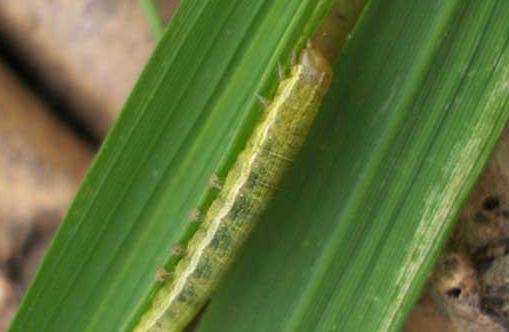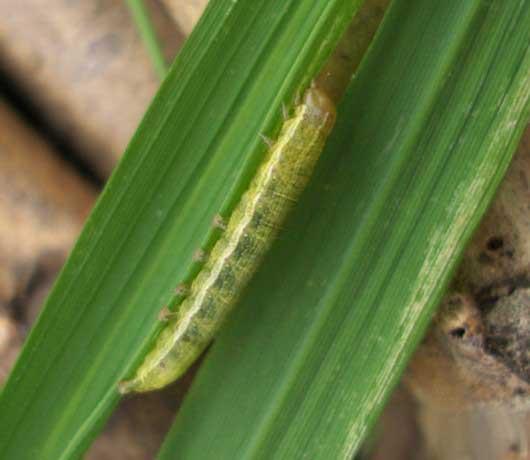Armyworm damages crops in China

 0 Comment(s)
0 Comment(s) Print
Print E-mail CNTV, August 15, 2012
E-mail CNTV, August 15, 2012
As harvest season nears in China, many areas in the north and northeast are facing a threat from the armyworm, a type of agricultural pest. It poses huge challenges to this year's crop production in the country.
The most serious agricultural pest in two decades.
700 thousand hectares of crops have been damaged in north China's Heibei Province that's a quarter of the province's total area. And the culprit is the armyworm which arrived with the rains in July.
In Cangzhou City, this kind of pest can be seen everywhere in the fields. The armyworms devoured corn leaves, leaving behind nothing but the veins. The provincial agricultural authorities have deployed more than eight thousand aerosol spraying machines, and declared war against the armyworms. 60% of the work has been finished so far.
 |
|
Large numbers of army worms have been invading much of Jilin province and Hebei province in the country's north from the beginning of August. |
In northeast Liaoning Province, armyworms have destroyed one third the crop lands. And in some areas, zero crop yields are expected. A local village in Shenyang city has experienced its worst year.
Farmer Kangping County, Liaoning said, "This has been the first time for us to experience such a disaster. The armyworm's coming surprises us all. It seems okay looking from a distance. However, if you come nearer, there's nothing left, it's all been nibbled up by the pest."
In neighbouring Jilin provice, a major crop producer in China, the armyworm's visit this month poses huge damage to this year's crop yields.
As of August 12th, more than 80 thousand hectares of farmland in the capital Changchun city have been affected.
In one local county alone, 42 thousand hectares of crop lands are damaged.
Zhang Bengui, Farmer, Nong'an County, Jilin said, "The armyworm grows very fast. There are dozens of armyworms in a single crop. They eat up the corn stalk from the bottom to the very top, with nothing left."
Some agricultural experts say the damage caused by armyworms can actually be prevented and controlled.
If handled properly, zero crop yields can be avoided, but there will still be a certain reduction.
They also say that based on the climate and the characteristics of the armyworm, farmers needn't worry too much about the crops in the following year.





